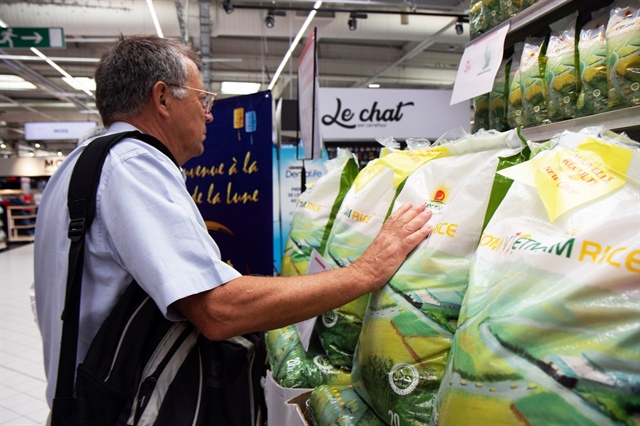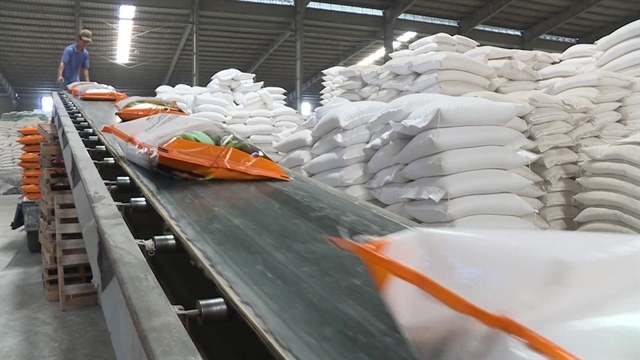Vietnamese rice conquers foreign markets
Vietnamese rice conquers foreign markets
Thanks to its improved quality and growing brand recognition, Vietnamese rice has found its way to many demanding foreign markets.
Market expansion
In order to bring ST25 rice to the Japanese market, Vietnamese enterprises must meet more than 600 strict technical standards and high requirements. Having satisfied those requirements, according to the Vietnam Trade Office in Japan, the “Made in Vietnam” ST25 rice brand was served on September 1 at a special lunch at the Japanese Cabinet Office for the first time.
|
Following this success, the “Com Vietnam” rice of the Loc Troi Group was exported through TT Foods to the leading French retail chain E. Leclerc and previously, 500 tonnes of the same brand were placed on the Carrefour chain’s shelves in France. European partners are expected to place additional orders for the next batch of rice exports in 2022 and 2023.
Pham Thai Binh, General Director of Trung An Hi-tech Agriculture Joint Stock Company (from the southern city of Can Tho) said that in the past nine months, rice exports in general and those by his company were favorable, and Trung An does not have enough rice to satisfy the European market. “We are also trying to increase production to meet demand in the last four months of the year,” Binh said.
Data from the General Statistics Office of Vietnam (GSO) shows that in the first nine months of 2022, Vietnamese businesses exported an estimated 5.443 million tonnes of rice (up 19.3 percent from the same period last year), earning revenue of US$2.64 billion, 9.3 percent more than the same time in 2021.
According to Assoc. Prof. Dr. Duong Van Chin, former Deputy Director of the Mekong Delta Rice Research Institute, the fact that many businesses can provide Vietnamese rice for the high-end market segment is a positive development, reflected in the fact that the price of Vietnamese rice in this segment is higher than that of Thai rice.

Vietnamese rice sold in France |
Increasing value chain
According to Phan Van Co, Marketing Director of Vrice Co. Ltd, two factors determine domestic rice prices: The rising USD/VND exchange rate and the increasing demand for rice products in the Philippines and Malaysia. The price of autumn-winter rice is forecast to increase, encouraging growers to invest in the next winter-spring rice crop.
Vietnamese economists and businesses expect Vietnam to still benefit from these favorable conditions over the next three years despite climate change.
Loc Troi Group Chair Huynh Van Thon said that Vietnam is the third largest rice exporter in the world, after India and Thailand. Its annual rice export volume is about 6-6.5 million tonnes, accounting for 7.8 percent of global trade and 24.5 percent of China’s market. Currently, Vietnamese rice is exported to 28 countries and territories, mostly in Asia and Europe.
Huynh added that Vietnamese rice has gradually penetrated discerning markets, but warned that these markets check for pesticide residues, regularly sampling Vietnamese rice at borders and crosschecking with other products on the market.
| The penetration of Vietnamese rice into discerning markets indicates that its quality is strong enough to capture a share of the international market. |

























